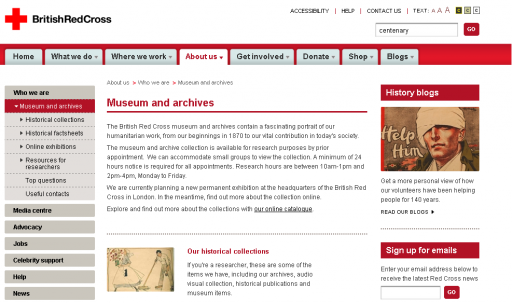The British Red Cross Museum and Archives is planning to provide free online access to its collection of 244,000 personnel index cards for members of the Voluntary Aid Detachment (VAD) who served during the First World War.
The British Red Cross Museum and Archives is currently in the process of applying to the Heritage Lottery Fund for financial support for the project.
The first stage of the project will involve working in partnership with Kingston University’s Centre for Local History Studies, “which has extensive experience in working on the digitisation of public records using volunteers”.
The museum is planning for the project to begin in October 2013, with the recruitment of approximately 100 volunteers.
These volunteers will be trained by the British Red Cross Museum and Archives in the transcription of the index cards.
The transcription will take 24 months, with the first data becoming available on line from August 2014, to coincide with the Centenary of the outbreak of the First World War.
The second stage of the project, from September 2014 onwards, will be to create an online teaching resource for secondary schools to mark the Centenary of the conflict, which will be made available via the British Red Cross’ main website, and the Voluntary Aid Detachment website.
“This resource will be shared with our teacher networks, which include 9,000 email subscribers. It will also be sent to local BRC Area youth staff and volunteers across the UK who will be able to use the resource in sessions with schools”.
“Alongside the database, teachers and students will be encouraged to access the resource to view transcriptions, photographs and correspondence from the Museum and Archives collection”.
The data will provide information on the social background and make up of VADs and changes throughout the period.
The British Red Cross Museum and Archives has emphasised that this aspect of the project could be of particular use to academics and “could also be used to study the nature of volunteering work during WW1, and will be particularly interesting for gender studies, especially research into changing patterns of women’s employment during the war”.
Images courtesy of the British Red Cross website
Source: British Red Cross release
Posted by: Daniel Barry, Centenary News
